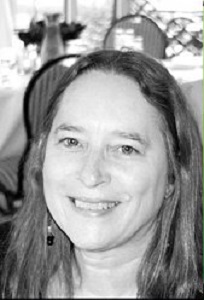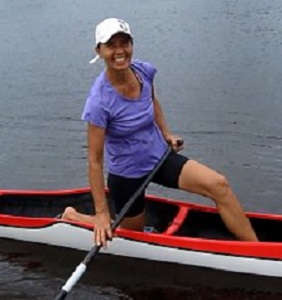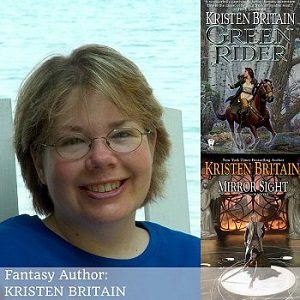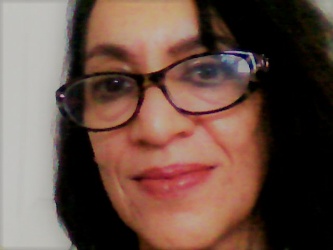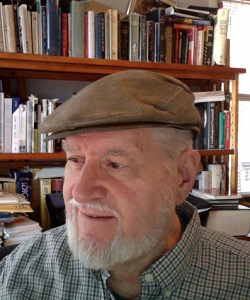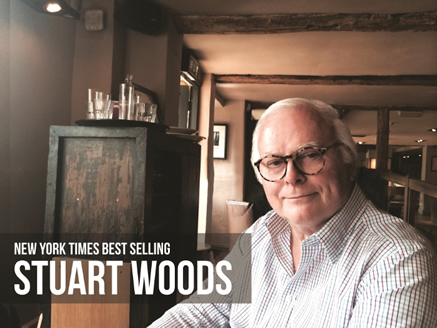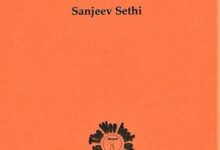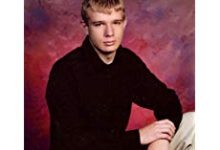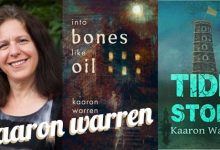Interview with American poet and freelance writer, Bernadette Geyer
WF is excited to bring you an in-depth interview with American poet and freelance writer, Bernadette Geyer. Her full-length poetry collection, The Scabbard of Her Throat, was selected by Cornelius Eady as the 2013 Hilary Tham Capital Collection title, published by The Word Works in early 2013. In 2010, she received a Strauss Fellowship from the Arts Council of Fairfax County. Geyer’s poems have appeared widely in journals including North American Review, Oxford American, The Paris-American, Poet Lore, and elsewhere. In July 2013, Geyer relocated to Berlin, Germany, where she works as a freelance writer, editor, and translator. Her non-fiction has been published most recently in Slow Travel Berlin and GoNOMAD. Geyer also leads online creative writing and social media marketing workshops for writers. Special thanks to Kyle R., Elvenswordsman, InstituteMan and Morkonan for their interview questions. We hope you enjoy!

Tell us a little about your background and what you have written.
BG: I primarily identify as a poet but, for the past 9 years, I have been working as a freelance writer, editor, and workshop instructor. Last year, I added “translator” to the list because my German language skills have improved to the point at which I have begun to translate German poetry, as well as some business materials for small companies. I began writing poetry in high school, and wrote a little in college, but it did not really become a “calling” for me until I was about 27 years old and took a community workshop at a local bookstore. I realized how much I had missed writing poetry and I wanted to get better at it.
Kyle R asks: What would you say is your biggest obstacle in life—and how do you deal with it?
BG: The short answer to that, which remains constant for all writers, is making time for the writing I want to do — poetry. I say “making time” instead of “finding time” because you really do have to make a conscious effort to carve out time for the writing you want to do. Then, there is the writing that I “need” to do, which is the writing – and editing – that I do as freelance work. The most current obstacle that keeps me from poetry is the fact that my husband and I are both growing our freelance consulting businesses in a new country. We moved to Germany in July 2013 with our daughter and the thing that is foremost in my daily to-do list is “make money.” But, the poems do come. I am not a prolific poet. However, I have been very happy with the poems I have written since we moved to Germany.
When and why did you decide to become a writer?
BG: When I was in middle school, I loved to read Nancy Drew. I began writing my own little mystery stories on the playground during recess and friends would pass around the pages to read as I finished them. I can’t remember if I told everyone I was going to be a writer, but I also began writing poetry in high school. I had a very encouraging English teacher and that helped. In college, I majored in Communication Arts because I wanted to go into radio journalism. But I still wrote a little poetry for fun, as well as for a few of my English classes. After graduating with a B.A., I went straight into the 9-5 world. When I was about 27, I saw a notice for a community poetry workshop at a local bookstore. It was free and I thought “Why not?” After I participated in that, I participated in another, and I was hooked back into poetry.
Was your education geared towards a writing career? How important do you think a writing education is for a writer?
BG: My formal education was geared towards a job in radio or TV, with the idea of being a journalist. I studied the history of the mediums as well as the history of rhetoric. It was fascinating to me. I think all education is important for a writer. If you want to teach, then having more formal qualifications like a Masters or Doctorate are typically necessary. But as for writing fiction, poetry, or creative non-fiction, many people are just as successful learning outside of formal academic institutions. It all depends on your means, your schedule, your family, and your own desires.
Kyle R asks: What are you most conscious of while writing?
BG: When I am writing poetry, the first draft is not typically something I make “conscious” choices about unless I am thinking about a particular subject in order to assess how I feel about it, what I think, how it relates to the world at large, or why the subject just seems important to me. Often, an object or situation will stand out in my mind and the note-taking in my journal is my way of exploring “why” it stands out in my mind, or made me go “Huh?” Once I think I have something that could be the bud of a poem, I become very conscious of word choices, sounds, and rhythm. Sounds have especially become important to me lately. While I am not a “formalist” poet, I do incorporate some formal elements like meter and rhyme – especially internal rhyme. But I don’t write a lot of poems in forms like sonnets or villanelles.
Kyle R asks: If you could give writers one piece of advice, what would that advice be?
BG: Do not compare your productivity or success rates with those of anyone else. I could go crazy if I looked at how many poems I wrote/published in one year and compared them with anyone else’s. Sometimes I will see someone post about how “few” poems they wrote/published in one year and I will think “Great! I’m not alone!” If you’re a turtle, be the best turtle you can be.
What is your most treasured achievement in your career and why?
BG: I would say at this point that my most treasured achievement is the publication of my first full-length collection of poems, The Scabbard of Her Throat. Many of these poems were written during the first few years after having a baby and leaving a full-time job, and the existence of that book is evidence that I have the ability to make time for my writing despite all that exists to pull me away from it.
What are your future ambitions?
BG: When I try to envision my distant future, my ambition is that I will still be making time for poetry, sending it out into the world, and finding publications that welcome the poems to share with their readers. Also, that I will get a few more books out into the world.
Do you read much, and if so, who are your favorite authors and poets?
BG: I am always reading something. I’ve been reading a bit more non-fiction lately than I used to, but there is always poetry in the mix. My favorite authors of fiction are Margaret Atwood, Jeannette Winterson, Italo Calvino, and Kurt Vonnegut, because they push(ed) expectations of what a novel can be. My favorite poets change on a regular basis, but today, at this hour, I would say W.S. Merwin, Wisława Szymborska, Dzvinia Orlowsky, and Thomas Lux. All write in very different styles from each other, so there’s no unifying factor except that their poems excite and/or inspire me.
Do you have a process for writing, such as set days of the week and daily word counts? If so, please describe it for us.
BG: In general, I “work” Monday through Friday, during the hours my daughter is at school, or at sports practice. This may not all be writing time. Some is also for editing, translations, teaching, etc. As a freelancer, I rely on those times to get work done. Because I have many projects of varying types, there is no “typical” process, and I do not set daily word counts.
As for my poetry, I am typically very slow in my process. When I get something onto a blank page in my journal, and if I think it’s promising, I will typically type it up and print it out for myself. I have a small desk in the house that I call my “editing” desk. No computer, just the desk and a chair and a lovely lamp. Most often, I will put the draft there for a while (a week or two, maybe a month, depending on what else is going on in my life at the moment) so that I can return to it with a fresh perspective. I walk past the desk very frequently because of its location and so I feel like the poem is always asserting its presence, even if subconsciously. I’ll look at it, and tweak a word. Or, I’ll scan it and have a sudden thought and then sit down and revise for an hour. Then I let it sit again. Type up a revision, print it out, let it sit some more. I usually have several poems in various stages of this process. Sometimes I just eventually decide to file them in the “abandoned poems” folder.
Extra Extra: See Bernadette’s Poetry Editing Desk Here | See Bernadette’s Business Desk Here
What is your ideal writing atmosphere?
BG: My ideal writing atmosphere is simply one in which no one tries to talk to me. I can be on a loud tram on my way somewhere else when a line or two comes into my head and, as long as no one is trying to talk to me, I can write in my journal (which I ALWAYS have with me) and try to get as much on paper before I have to get off the tram. And then, I can always just stand against a wall on the sidewalk and continue writing in the notebook after I get off the tram. I’ve even written notes for a poem while in the middle of preparing dinner – notebook at my side, thinking of lines while I chop vegetables, and then writing them down when I have the line just the way I want. I keep my journal by my bedside, as well. Sometimes I will think of a way of starting an article I have to write, and I NEED to write that down before I fall asleep or I will never remember it in the morning.
Where do you get your inspiration?
BG: I know it may sound glib, but I find inspiration everywhere. I have a Jack London quote above my desk – “You can’t wait for inspiration. You have to go after it with a club.” I keep my eyes open. I think quite a lot about seemingly inconsequential things like killing a spider, or the glow-in-the-dark stars on a bedroom wall. I let myself have ridiculous thoughts and don’t pre-censor myself.
How do you think you’ve evolved creatively?
BG: In thinking about the evolution of my poetry, I think that my very early poems were very straightforward, narrative, “this is what happened” kind of anecdotes. When I began reading a lot more contemporary poetry, I started to move towards what I thought was “popular” in the heavy use of poetic devices. But I was always unhappy with the way my poems sounded when I did that. Sure, many of the poems were published, but they just didn’t sound like poems that would come from me. It took a while for me to appreciate the ways that poetry could be crafted to incorporate poetic devices, while still sounding more natural, more like my own voice. I pay a lot of attention to word choice, line breaks, and sound, but those are not things that people, upon first read, would notice as very specific decisions. Not in the way that a very cleverly-crafted simile or metaphor announces itself in a poem.
Which author or poet, living or dead would you like to meet and why?
BG: Goodness, this is a difficult question. I have already had the great opportunity to meet so many poets whose work I love, so I guess if I have to pick just one writer, I would pick a non-poet – because it’s highly unlikely that I will be able to meet this person: Jeanette Winterson. Why? Her writing style and subject matter expanded my idea of what a novel could do. In addition to being a great novelist, her essays are wonderful, and she highlights the work of poets on her web site. I could go on gushing about her as a great writer and equally great literary citizen, but I will stop now.
Kyle R asks: How would you describe the perfect poem?
BG: The perfect poem for me, as a reader, should make me think. It can make me think about the topic in a new way, or surprise me in the way it says something.
TKent asks: What is your favorite poem you’ve written and why? Can you share it with us?
BG: My favorite poem that I’ve written that I can share with you is from my recent collection, and is the poem from which the book’s title is derived. The poem title is “The Sword Swallower Finds a New Calling,” and it was inspired by a walk with my 7-month-old daughter. She had tried to put a pebble in her mouth and for some reason, an image popped into my head of a sword swallower who decides to start swallowing stones instead. I have no idea what made me think of it, but lines came to me here and there and as I thought about the idea, I thought about how a person evolves throughout their life. And so this poem came out of that:
The Sword Swallower Finds a New Calling
She swallows stones, now—
throat like a creek bed.
Started with pebbles. Palmed
several to warm them
before she plucked one,
placed it in her mouth,
tongued its smooth surface, imagined it
transubstantiated into a pearl.
She filled herself with pearls
until her skin rivaled their milkiness.
Under the floodlights, she glowed,
audiences rapt as they never had been
when it was just another trick,
sword seeming to disappear
in the scabbard of her throat.
She savored another stone,
tasted the vinegary remnants
of a thousand compressed years.
She felt a kinship
with the grain of sand she imagined
locked within the stone’s heart,
which could have begun life
in the mouth of another creature,
could have evolved
into something else entirely.
InstituteMan asks: What is the intersection between poets and prose writers? Is it just a matter of developing a general talent for writing in a specific area, or do the two require different skill sets? To the degree there’s overlap, what kinds of prose do the poetically inclined excel at writing, and vice versa?
BG: I know many poets who are also prose writers. I think there are people who are able to write prose very “poetically,” but I also think that poetry requires a certain conciseness that is a different skill. There are certainly long, narrative poems – even book-length poems – that serve a similar purpose to that which we normally associate with prose. And, of course there are prose poems, which are typically very short, which completely meld the two genres. This is a difficult question for me to answer, since I am not really a fiction writer. But thinking about non-fiction prose, an important skill that is overlapped with poetry is the art of description – being able to help people see and feel what is being described. In poetry, there is the oft-repeated advice of “show, don’t tell,” but the same is true with a lot of prose. In the non-fiction realm, I think of Anthony Bourdain, whose prose I find captivating in its description of not just the food, but the culture and landscape of the places he visits.
Elvenswordsman asks: Poetry seems to be something you either can do, or can’t grasp. Which foundation should be built to give yourself the best shot at writing poetry well? Is it reading the works of great poets, experience, learning format and structure, or a mix of many things?
BG: I have met many people who can enjoy reading poetry, even though they themselves can’t write it. I think that people who “can’t grasp” poetry have just not experienced enough types to find a type that they can grasp. There are so very many types of poetry, styles, schools, modes, many of which don’t float my particular boat. But I find the poems that do resonate with me, and I write in a way that I feel is true to myself, and I find that there are others with whom my poems resonate. I think it’s just a matter of finding the poems that resonate with you as a reader.
As for your second question, it really is a mix of many things. Of course poets should read the greats so that they understand the evolution of poetry from a certain mode – focused on formal styles – into the many-faceted genre that it is now. I can’t remember where I heard it or who said it, but I think of the phrase “You have to learn the rules in order to understand when and why to break them.” Or something like that. There are certain “poetic devices” that can be used to achieve certain emotional/mood shifts or to make connections with a reader. But a whole bunch of poetic devices strung together do not automatically make something a poem.
I think in order to “give yourself the best shot at writing poetry well,” you need to read not only classics, but a whole wide variety of contemporary poets – from award-winners to emerging writers. There are so many online journals that there is no excuse for not reading contemporary writers. One great resource for finding these online journals is New Pages (www.newpages.com). And give yourself the permission to experiment with lots of different ways of writing. Begin with imitation of styles of others until you find a style that really speaks to you and energizes you and makes you want to write more in that style. If you continue to write and find what works for you, your voice will undoubtedly emerge.
Morkonan asks: What advice can you offer to assist non-poetry-friendly minds when it comes down to comprehending and enjoying poetry?
BG: Try to read a wide variety of styles and types of poetry to find what resonates with you, what makes you laugh, what makes you stop and think. Don’t worry about analyzing a poem the first time you read it. Read it first just to find out what it’s saying. Can you enjoy it on that level? If not, try then to at least see what the poet is trying to do with the poem. Is it a story? Are there pieces missing? Are you able to figure out what’s going on even if some of the details are missing? With something like language poetry, the point is not necessarily to make narrative sense but to play with sound or word juxtapositions. There are really so many styles of writing in the world. A great place to start is with New Pages (www.newpages.com), where you can find listings of many online journals you can peruse. Subscribe to something like Poem-a-Day by the Academy of American Poets (http://www.poets.org/poetsorg/poem-day) – a free daily email featuring one poem and a little paragraph by the poet about how the poem came to be. The daily poems range in style so that you are introduced to a wide variety of types of poems, including classics you may not have read before.
You also teach poetry. What is your process for teaching poetry? Is there a philosophy you try to impart?
BG: The poetry workshops I lead help people who just can’t seem to find inspiration to write, or who are just getting started with their writing and want to understand more how other poets find their inspiration. Each week, I have a special theme – such as poetry about art, portrait poems, poems in the voice of another person or object – and provide a variety of example poems and links to interviews or essays on the theme. Then, the assignment for the week is to write a poem that goes with that theme. For the workshops I lead on “The Art of Revision”, I help poets to understand that just because they don’t like the first draft of a poem doesn’t mean they have to abandon it completely. I provide exercises that help them to re-imagine their poems and play around with them to see what the poem wants or needs to take it to the next level. Many poets in the workshop are surprised when they see some of the very early drafts of Elizabeth Bishop’s famous poem “One Art”.
Throughout the poetry workshops I lead, I try to impart (not quite a philosophy, but) a sense that writing poems and finding inspiration for poems should be an enjoyable thing. There’s this image stereotype of the angry poet sitting hunched over drinking and smoking in a bar by himself/herself scribbling madly in a notebook. And, while some of my poems were definitely “scribbled madly” in my notebook as I sat alone in a small café or bar, the writing of poems and the imagining of new ways of seeing things is very enjoyable to me. And if I don’t like the way I’ve written a sentence when I look at it the next day, I rewrite it and rewrite it and rewrite it until I do like it.
TKent asks: In addition to writing poetry and non-fiction, you are an editor, translator, and teacher. How and why did you get into these other areas of work?
BG: I started out in marketing and public relations. I was writing ad copy and PR materials for many years. That was my career. Luckily, I spent a long time working to promote an organization I believed in, so I was happy with the writing I did for them. The poetry was something I did outside of the job. To make a long story short, when my husband and I first came up with our “10-year plan” to live in Germany, I started picking up freelance editorial work on the side, building the skills I would need so that I could be “portable” as a freelancer. I wanted to be able to work from anywhere in the world. I left the 9-5 world when I had a child and continued to build my freelancing business. I began providing editorial services to independent publishers and authors. Then, I began teaching workshops, as well. When we moved to Berlin in 2013, I focused on improving my new language skills and met a German writer whose poetry I began to translate. She really helped me to understand the nuances of the language. Translating business materials from German to English was a natural next step, and so that has been added to the list of freelance services that I provide.
Out of all of these activities, including your writing, which do you find most rewarding personally?
BG: I am most rewarded by writing my own poetry, but it is also incredibly rewarding to me to lead the online workshops where I can share my love of poetry with others. I get to share poems that inspire me and ideas that spark my creativity. And, when I get positive feedback at the end of a workshop from someone whose writing benefited from my lessons, that’s the icing on the cake.
How common is it for a poet to make a living only writing poetry?
BG: Very uncommon. Even for those who receive grants and fellowships, the money only lasts so long and then you have to get funds another way.
What is your role in marketing your books and poetry?
BG: As a writer, you have to also be prepared to play a role in marketing your books and poetry. You will need to be your own best advocate. I have my books and writing showcased on my web site, I have a blog (occasional), Twitter, Facebook, and Tumblr (not so active), all of which are places where people can find out about me and my writing. But, I try not to be 100% promotional in my social media activities. Sure, when I have good news about a publication, I post about that. But I also promote good news of friends and authors and publishers I admire.
When The Scabbard of Her Throat first came out, I sent emails around to places to set up readings. I sent announcements to all of the literary journals that had previously published me, and many of them announced my good news on their Facebook pages or in newsletter updates. My publisher got me scheduled for a few readings, and organized a book launch reading event at the annual conference for the Association of Writers and Writing Programs (AWP). The big problem with setting up readings for my book was that I moved out of the country six months after the book was published. Here, in Berlin, I’ve immersed myself in the English-language literary community, I’ve read several times in literary programs, and I have gotten my book into the stock at a few of the English bookstores.
What marketing techniques have worked best for you?
BG: Meeting people in person and talking about the book, reading poems from it, is one of the best techniques for me. I think giving readings is one of the best ways I’ve been able to connect with readers. You are definitely not going to sell a lot of books at each reading, but it is where people can get to know you, hear your poems, and even talk with you about the poems afterwards.
Thinking of marketing in the sense of “getting my name out there” I would say that getting to know other poets and writers and publishers through social media channels has been a great way of building community and a network in the U.S., despite being in another country.
You offer training courses on social media. In your opinion, what are the primary benefits a writer gets from social media?
BG: Getting engaged with the global community of writers. That is the biggest benefit for me. Being able to share your successes or commiserate about disappointments is valuable for me. I think every writer should have some sort of presence online for people who want to know more about them and their writing, see samples of their writing, or purchase copies of their books. It amazes me when I read a poem or short story in a journal and want to know more about the writer but can find absolutely nothing about them online.
What social media channels do you think work best for writers?
BG: I have built up a good network on Facebook, and believe that it’s important to at least have a Page established there if you have books available. But FB has made it increasingly difficult for businesses with FB Pages to actually have people read their posts unless they pay to promote the posts. So, don’t rely on a Page, but certainly have one established in case people are looking for your writing. Twitter has been valuable to me and I’ve got a decent following there, but I have to time my posts so that I’m not hitting the feed while everyone in the U.S. is asleep. Blogs are also good, but you have to be focused and consistent to really get a following. I’ve gotten to know writers who work different channels very well.
What you are working on now?
BG: I have a new full-length book manuscript that I’ve been sending around to a few publishers for consideration. I’m also trying my hand at more translations, and pitching some travel article ideas to magazines.
When and where can our members get find your book?
BG: My book The Scabbard of Her Throat is available through my publisher (http://wordworksbooks.org/books2.html#throat), and I have a list of links to other purchasing options on my web site page for the book, which includes blurbs, sample poems, and links to a couple of reviews (http://www.bernadettegeyer.com/ScabbardofHerThroat.html).
Where can members discover more about you and your work?
BG: They can check my web site (http://www.bernadettegeyer.com), which features links to my poems and articles that are available online, links to videos and audio recordings of a few of my readings, as well as info about the workshops I lead and the editorial services I provide for writers.
Website: www.bernadettegeyer.com
Facebook Page: https://www.facebook.com/bernadettegeyerauthor
Twitter: https://twitter.com/bernadettegeyer
Blog: http://bernadettegeyer.blogspot.de/
Links to work available online:
Poetry:
32 Poems – Thumbelina’s Mother Speaks: To the Toad’s Mother
Heron Tree – Parable of the Great Outpouring
La Petite Zine — Contrary to Popular Belief
The Paris-American – Thanksgiving
Redux: A Literary Journal – Fire Ants Invade Hong Hock See Buddhist Temple; Remembering Is Short; Haunting
Verse Daily – Without Warning
Waccamaw – Pit
Nonfiction:
“Kunstquartier Bethanien,” Slow Travel Berlin, December 2014 link
“The City behind the City of Berlin,” GoNOMAD, November 2014 link
“Fellowship Opportunities for Writers in Berlin,” Funds for Writers, September 19, 2014 link
“Making Every Word Count,” Absolute Write, July 27, 2006 link
“When Leaving Isn’t Easy,” Go World Travel Magazine, January 2006 link
Poetry Readings:

